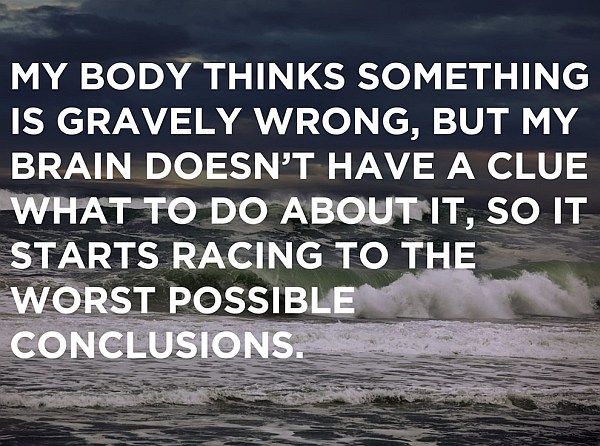Are you familiar with panicattacke symptoms? Are you a sufferer of panic attacks? With the number of people suffering from panic attacks in the millions, it seems this problem is more common than you originally thought. If you feel you may have had panic attacks yourself but you are not really sure, read on to see if any of these symptoms sound all too familiar.
Panic Attack Symptoms

First off, keep in mind that you may not experience all these symptoms. Everyone is different and may experience things in different ways. The following are the most common panic attack symptoms:
- tight feeling in the chest
- increased heart rate
- hot flushed feeling
- excessive sweating or clamminess
- shortness of breath
- hyperventilating
- nausea
- muscle tension
- dizziness
- terror
- fear of impending doom
For many people, the first time they experience a panic attack they feel like they’re having a heart attack or are dying. They’re rushed to the hospital only to find that their heart is fine and the doctors can’t find anything physically wrong. If the idea of panic attacks is not brought up, they’re left feeling that something is wrong with them and they begin to visit different medical doctors trying to determine what it is.
What Causes Panic Attacks
Panic attacks occur when the “fight or flight” adrenaline goes into overdrive. Your body believes that it is about to be attacked and brings forth all the responses that would go along with a seriously dangerous situation. The trouble is, the event at hand does not warrant this behavior. Yes, you know your fear is way out of proportion but you are unable to stop it. You can say to yourself, “This is silly, I’m just going to drive on this freeway for 5 miles as I’ve done many times in the past” but your body reacts anyway.
Even scarier is realizing that these attacks can happen at any time. Some people wake up in the middle of the night with them or have them occur when doing something as benign as watching TV.
It is commonly believed that panic attack disorder can be triggered by any of the following:
- stress, situational or long-term
- hormones
- post-traumatic stress disorder (PTSD)
- possibly excessive sugar or caffeine
The worst part is anticipating or worrying that you will have another panic attack. In fact, the worry can be enough to bring on a panic attack. Added to that it seems each episode is burned into your brain and you feel if you’re in the same situation or location, you will surely have another episode. Because of this you start avoiding these situations or locations. But avoidance behavior is not the answer.
If these symptoms ring true for you, seek answers. You don’t have to continue to suffer from panic attack symptoms, there is treatment available.




